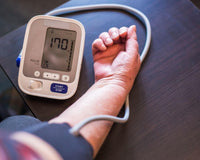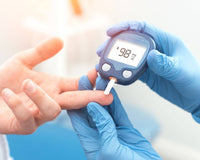Dicyclomine Side Effects, Uses Warnings, Dosage & Interactions
Dicyclomine is a prescription drug used to treat and alleviate the symptoms of irritable bowel syndrome (IBS). It is commonly available as the brand name drug Bentyl. In this article we discuss the uses, side effects, dosage, interactions and warnings of dicyclomine.
What Is Dicyclomine?
Dicyclomine is a prescription medication available as the brand-name drugs Bentyl, Byclomine, and Dibent.
Dicyclomine Side Effects
Dicyclomine may cause side effects. Some side effects are more common and serious than others.
Common Side Effects
The most common side effects of dicyclomine may include:
- Dry mouth
- Upset stomach
- Vomiting
- Stomach Pain
- Constipation
- Gas or bloating
- Dizziness
- Loss of appetite
- Tingling
- Headache
- Weakness
- Drowsiness
- Blurred vision
If these side effects are mild, they may disappear within a few days. If you have stopped taking your medication and the effects are still present, talk with your doctor or pharmacist.
Serious Side Effects
Other side effects of dicyclomine are more serious. Call your doctor immediately if you are experiencing any of these serious side effects.
- Confusion
- Forgetfulness
- Coma
- Anxiety
- Unsteadiness
- Excessive tiredness
- Muscle weakness
- Difficulty falling or staying asleep
- Fainting
- Hives
- Skin rash
- Itching
- Difficulty breathing or swallowing
Disclaimer: Here at Manifest Pharmacy, our goal is to provide you with the most relevant and current information. However, because drugs affect each person differently, we cannot guarantee that this information includes all possible side effects. This information is not a substitute for medical advice. Always discuss possible side effects with a healthcare professional who knows your medical history.
What Is Dicyclomine Used For?
Dicyclomine is used to treat symptoms of irritable bowel syndrome (IBS). It helps to reduce symptoms of IBS including stomach and intestinal cramping.
How does Dicyclomine Work?
Dicyclomine works to reduce painful symptoms of irritable bowel syndrome including stomach and intestinal cramping. It does so by slowing the natural movements of the gut and relaxing muscles in the stomach and intestine. Dicyclomine also works indirectly to decrease the effectiveness of a neurotransmitter called acetylcholine. Dicyclomine has muscle-activating effects.
Dicyclomine Warnings
In rare cases, dicyclomine can lead to heat stroke and central nervous system complications. Talk to your doctor immediately if you experience any of the following.
Central Nervous System Warning
Dicyclomine can have negative impacts on brain and central nervous system function. Side effects may include:
- Short-term memory loss
- Hallucination
- Weakness
- Trouble falling asleep
- Stuttering
- Loss of muscle control
Intestinal Obstruction Warning
Dicyclomine may make intestinal blockage worse. It can be especially dangerous for people who have had part of their intestinal tract removed.
Heat Stroke Warning
Taking dicyclomine can cause you to sweat less. Lack of sweat can cause your body to overheat in especially hot environments. Symptoms of overheating include fever, tiredness, dizziness, and muscle cramps. If you think you may be experiencing heat stroke, move to a cooler environment and call your doctor immediately.
Dicyclomine Dosage
Your dosage recommendations for dicyclomine will vary depending on:
- Your age
- Your condition
- How severe your medication is
- How you react to your first treatment
Dosage for Irritable Bowel Syndrome
Dicyclomine for irritable bowel syndrome is available as both an oral tablet and intramuscular injection.
Oral
The recommended initial oral dosage for adults is 20mg four times a day. After one week, dosage may be increased to 40mg four times a day. If efficacy is not achieved after two weeks or side effects require dosage below 80mg per day, the drug should be discontinued.
Intramuscular Injection
Intramuscular injection of dicyclomine must be administered through the intramuscular only. The recommended dosage for injection is 10mg to 20mg four times a day.
Dicyclomine Interactions
Dicyclomine may affect how other medications work or increase risk for serious side effects. Keep a list of all products you use and share it with your doctor or pharmacist. Do not stop, start, or change the dosage of any medications without doctor approval.
Some products that may interact with dicyclomine include potassium tablets and drugs that are affected by slower gut movement, such as pramlintide. Dicylomine may affect the absorption of other products such as levodopa, digoxin, and antifungal drugs like ketoconazole and itraconazole.
Tell your doctor if you are taking any other medications or products which may cause drowsiness including antihistamines, muscle relaxants, drugs for sleep and anxiety, and marijuana.
Dicyclomine Side Effects, Uses Warnings, Dosage & Interactions: Summary
Dicyclomine is a prescription drug. It is available as the brand-name drugs Bentyl, Byclomine, and Dibent.
Dicyclomine is used to treat symptoms of irritable bowel syndrome such as intestinal cramping. It is available as an oral tablet and intramuscular injection.








